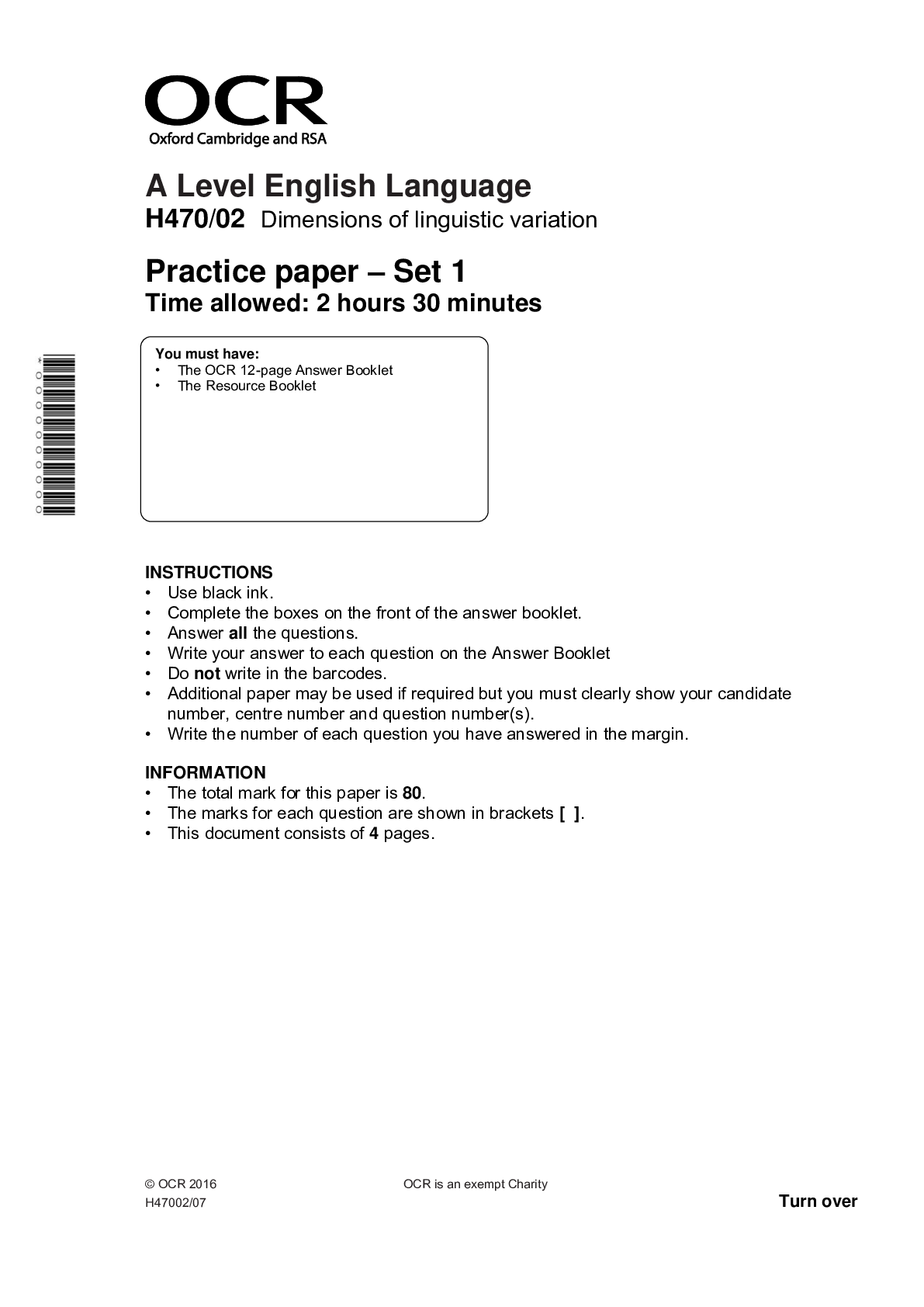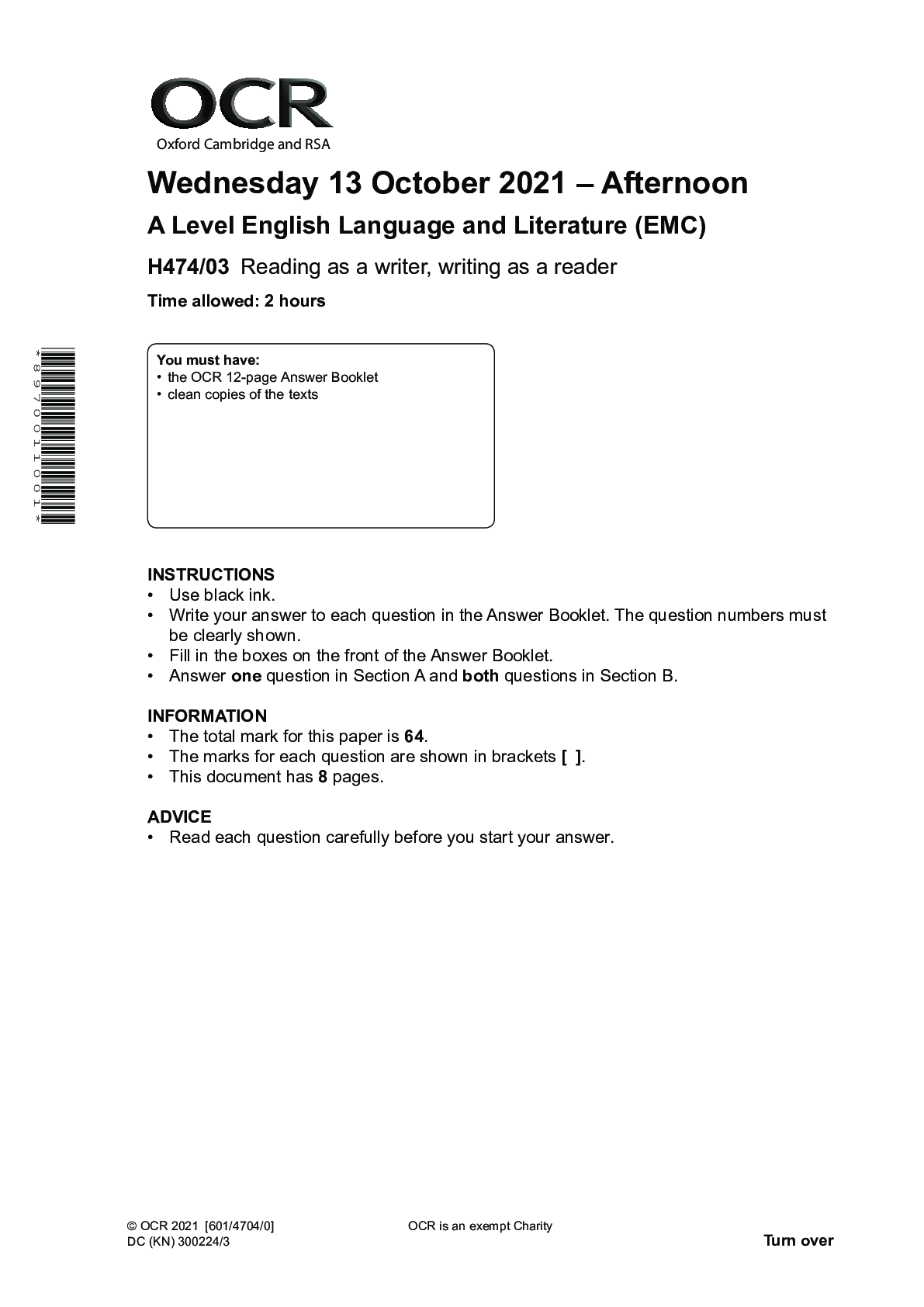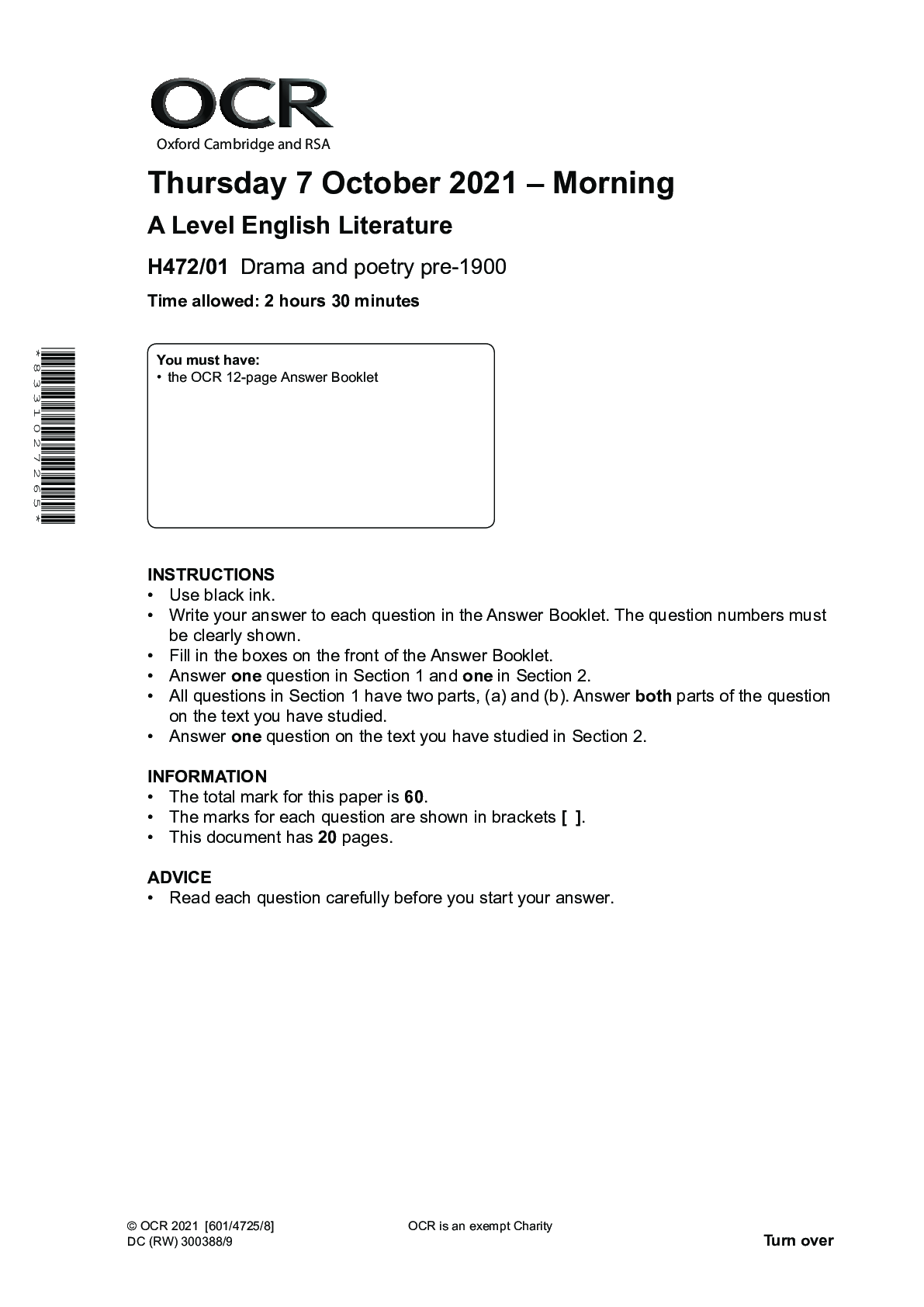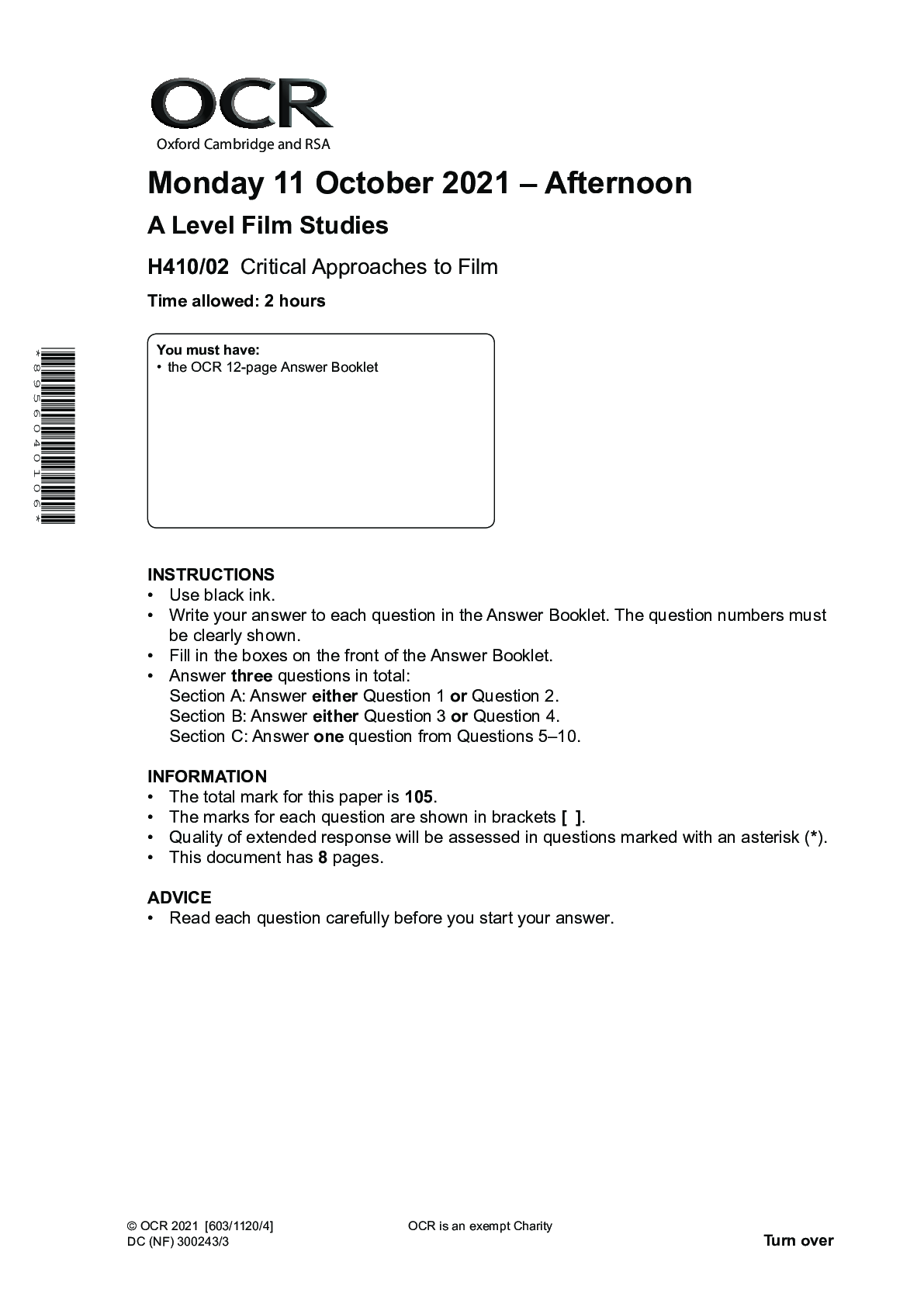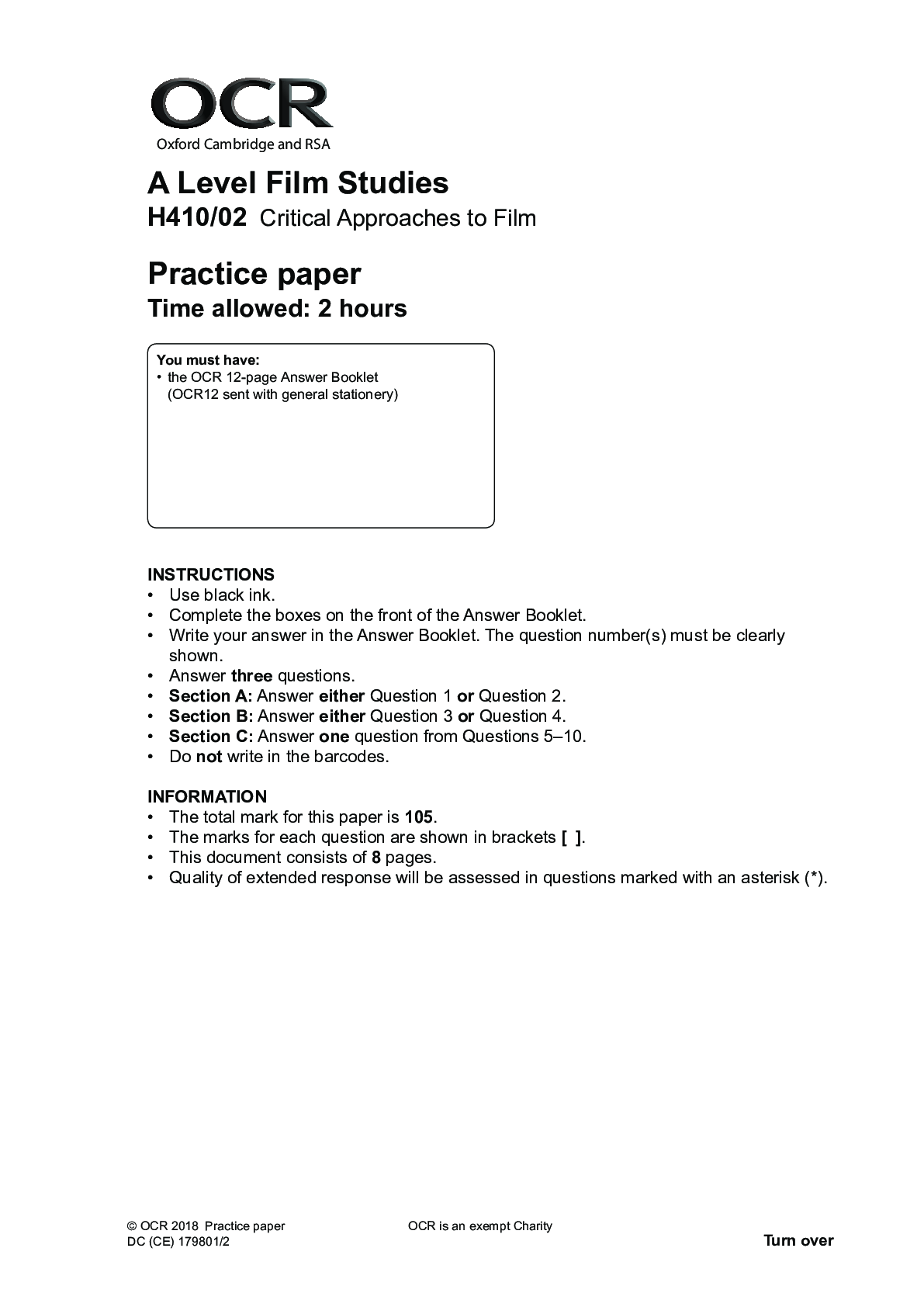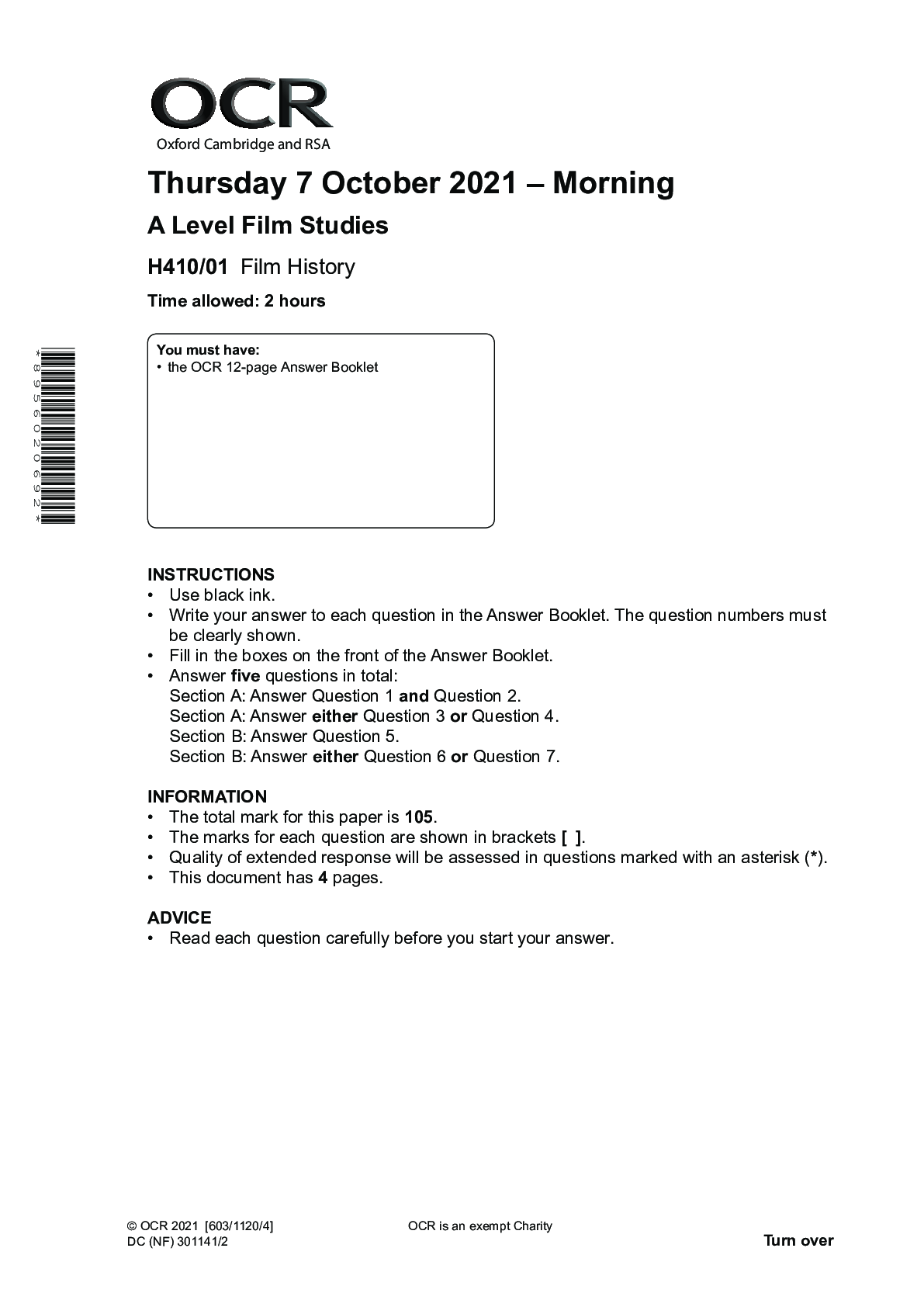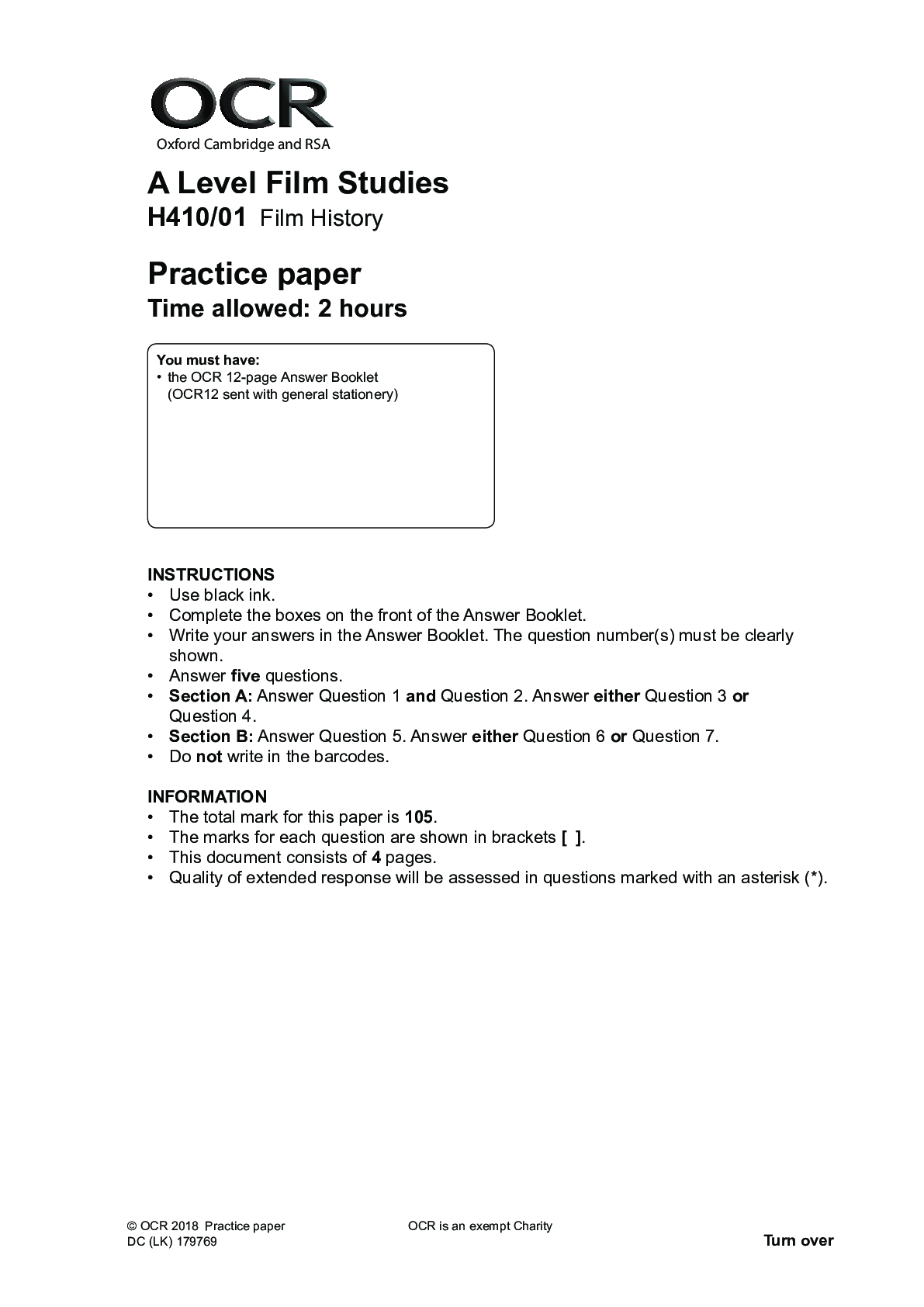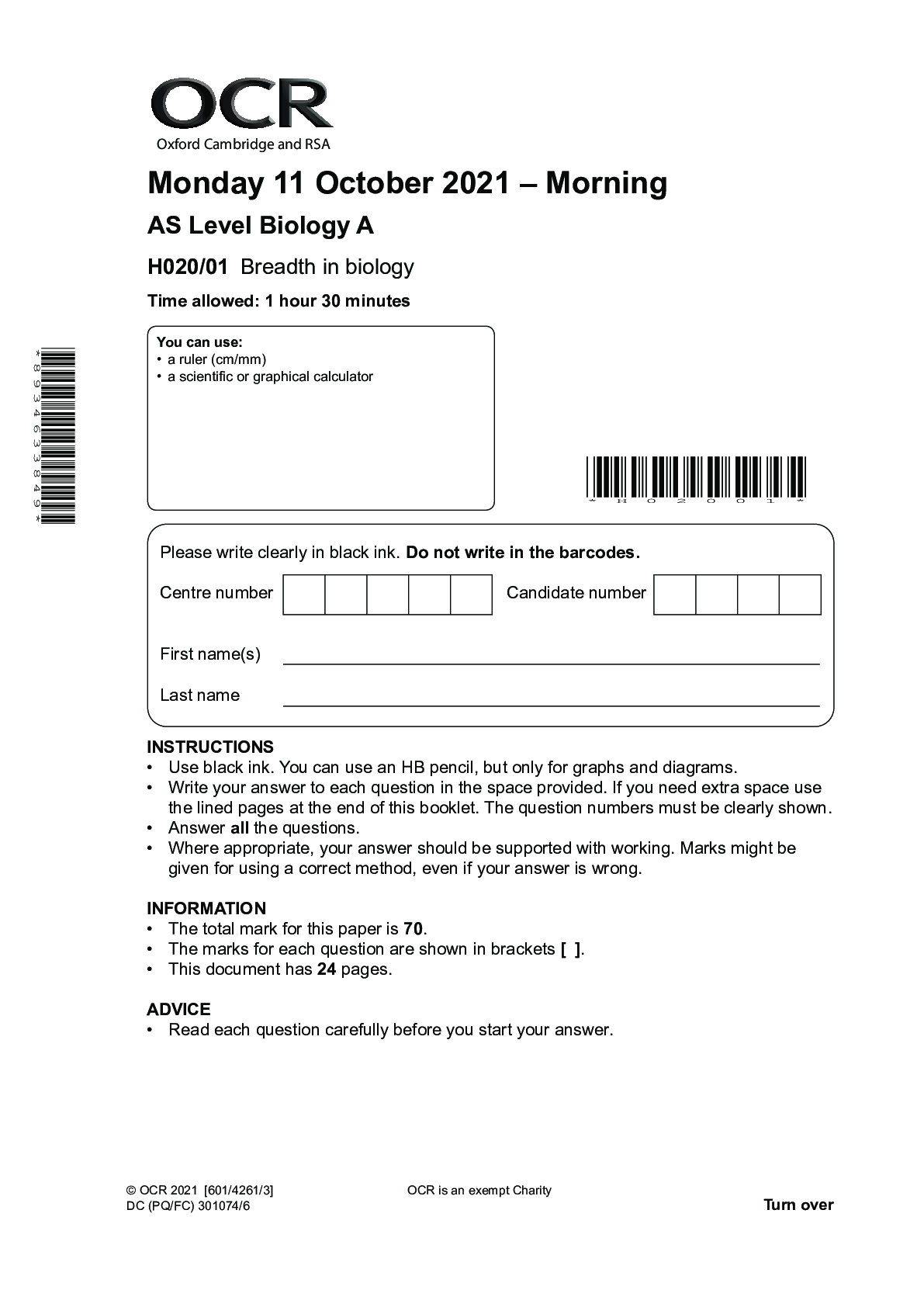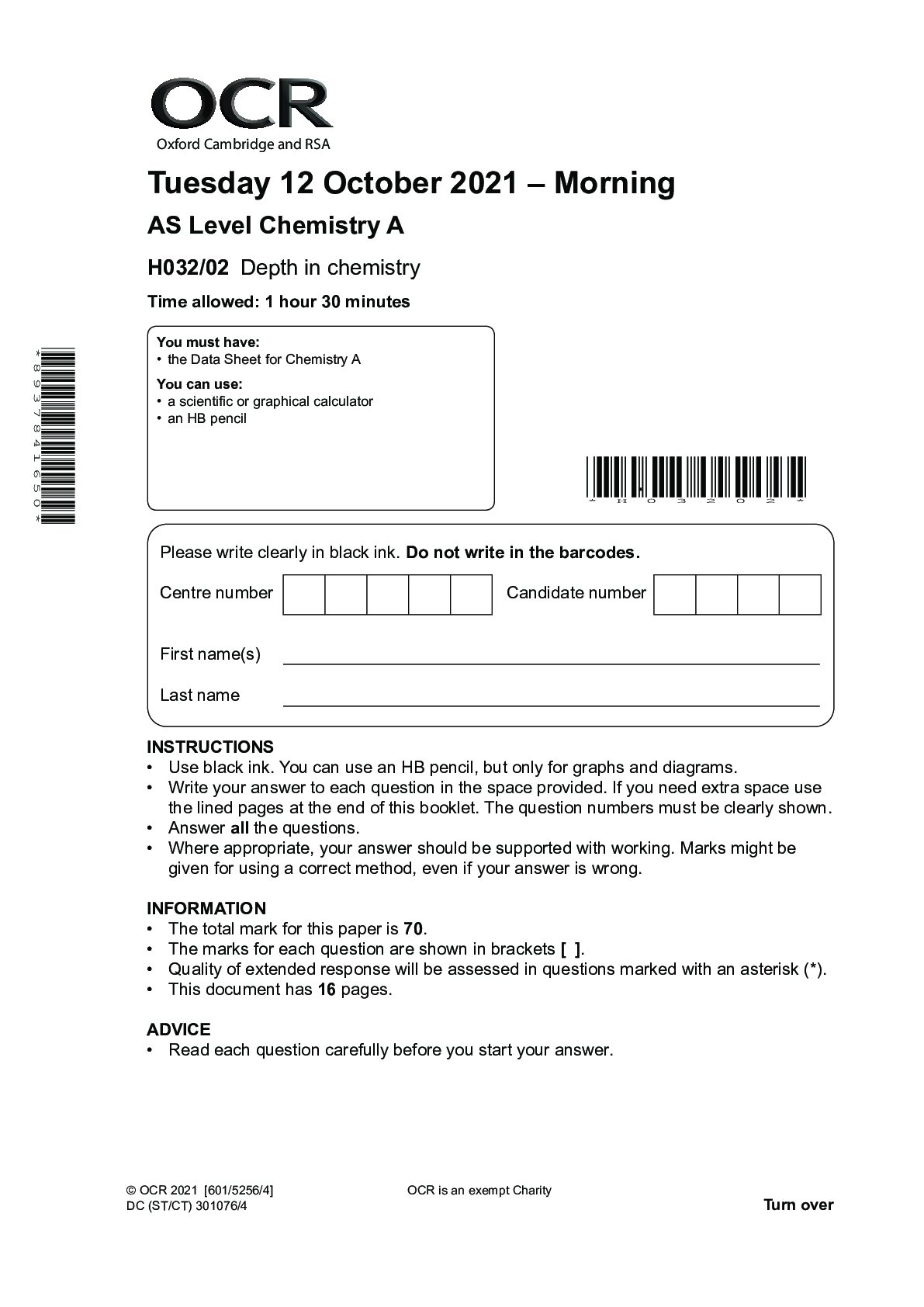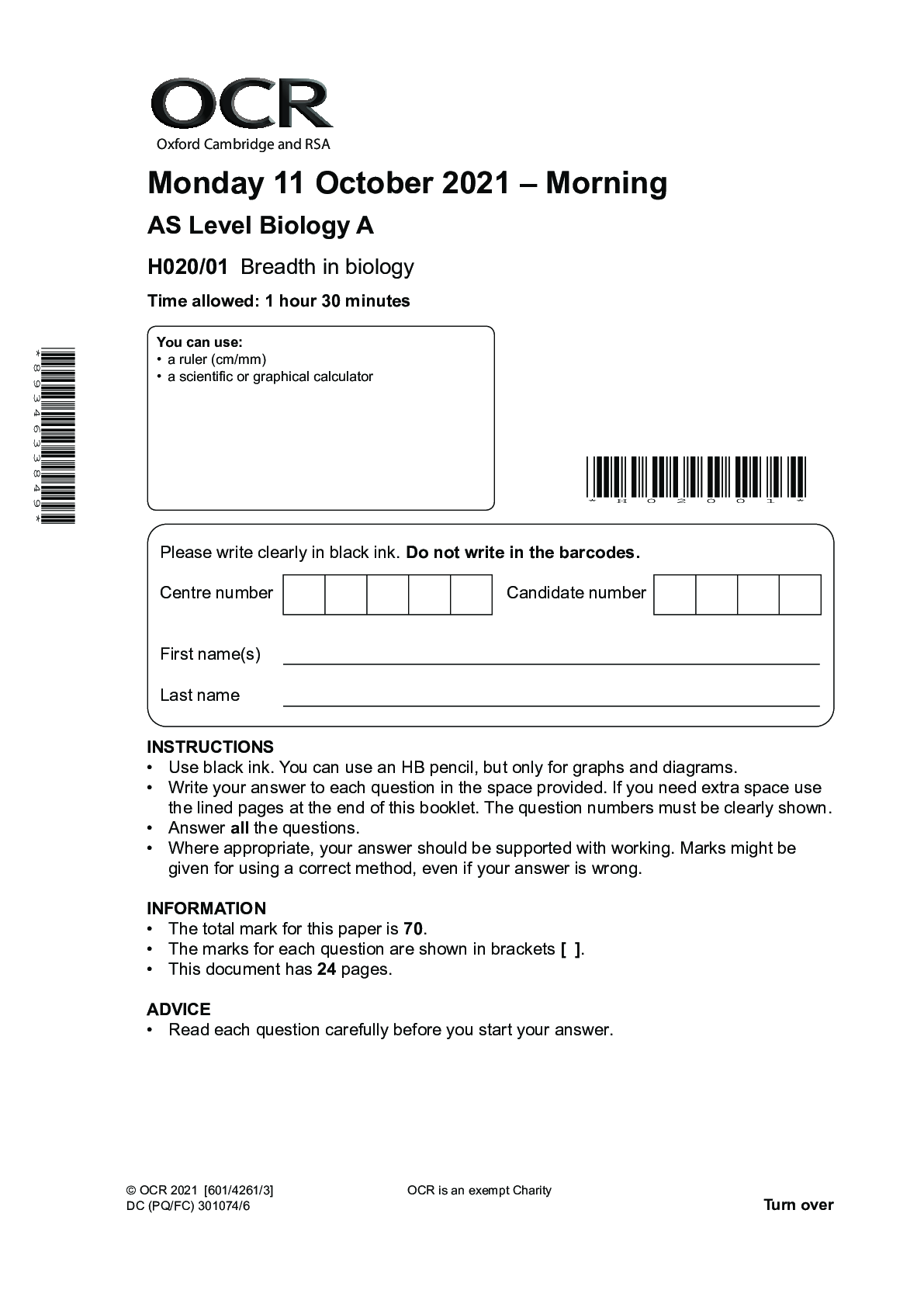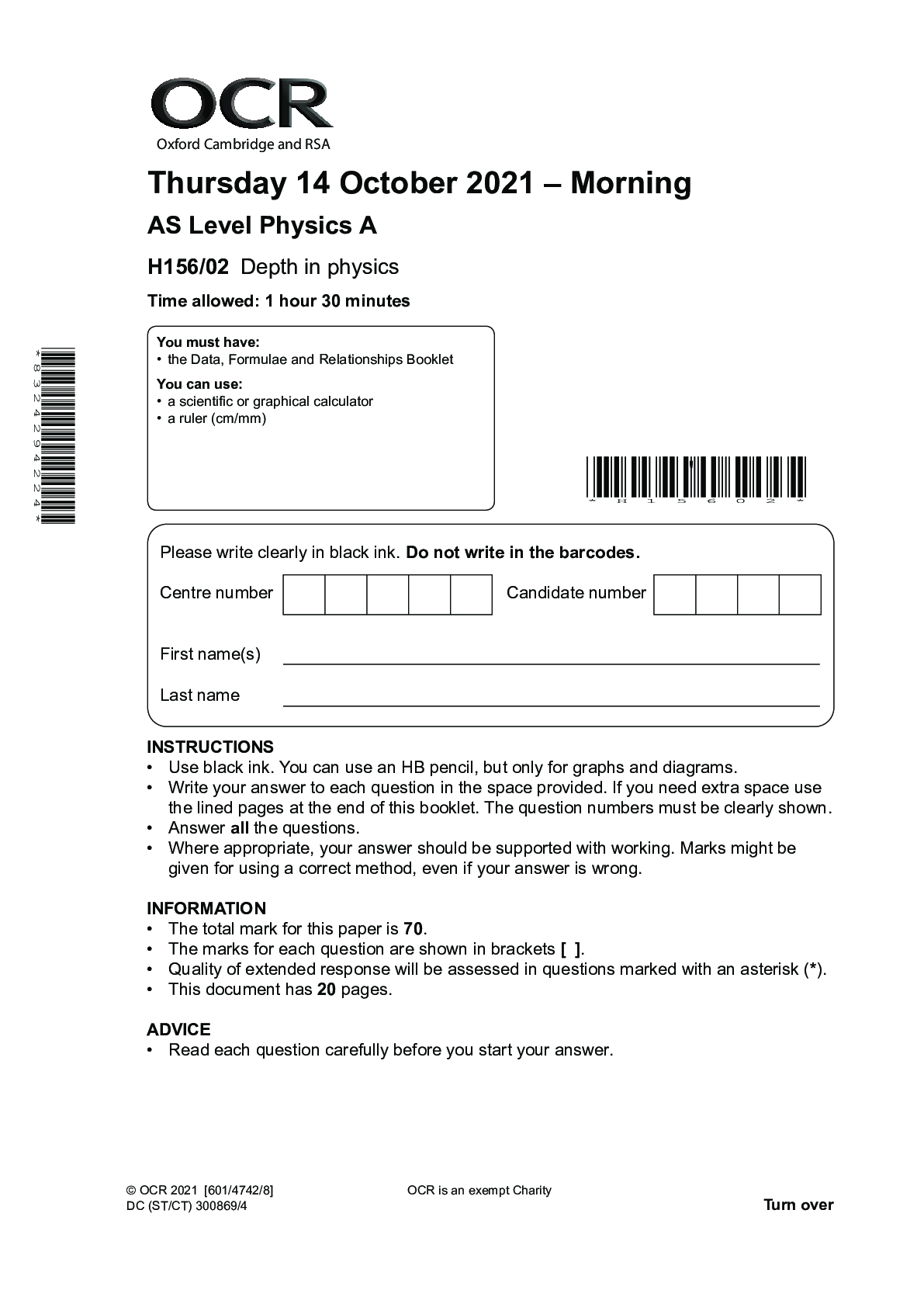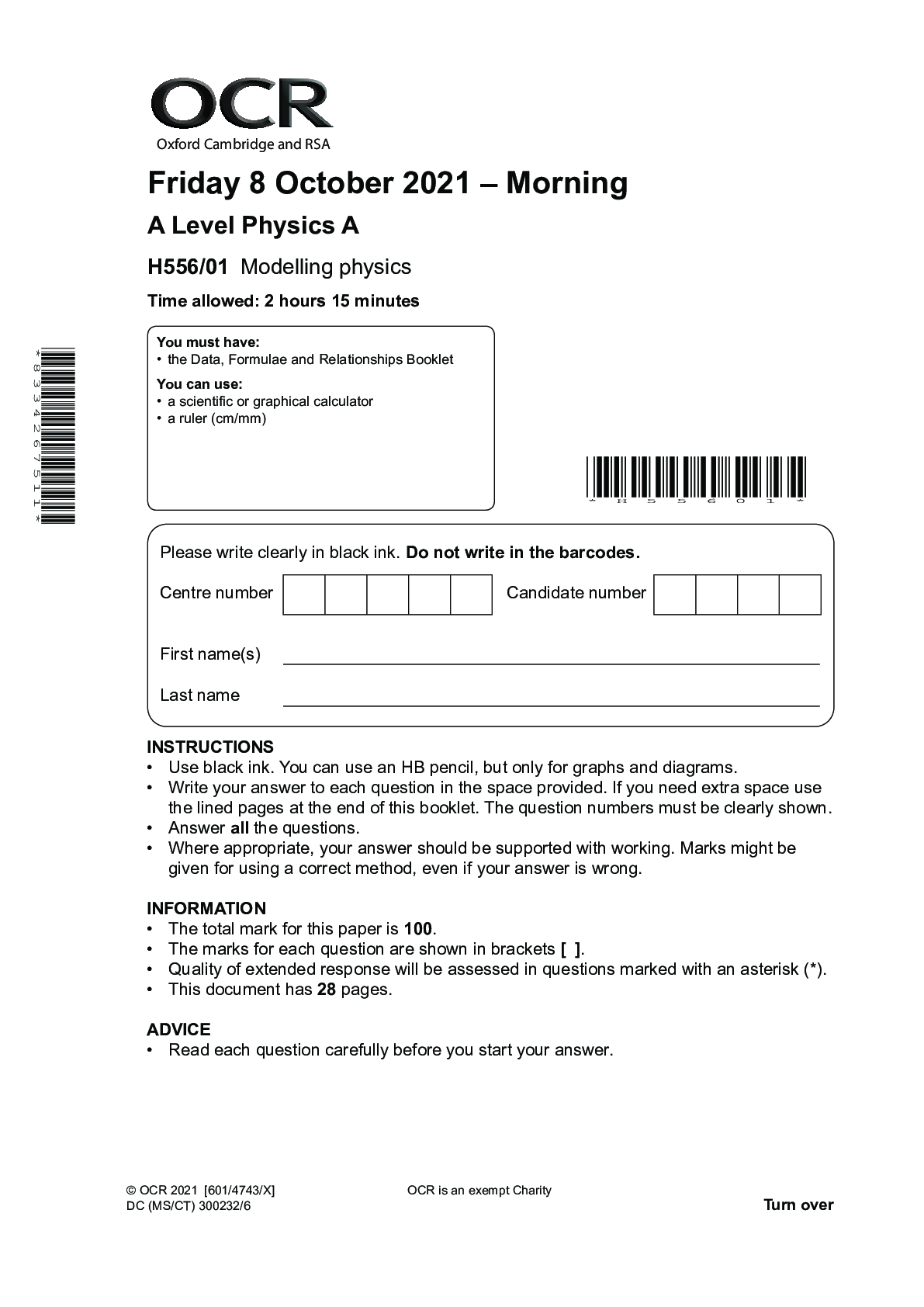English > QUESTION PAPER (QP) > > Wednesday 13 October 2021 – Morning A Level English Literature H472/02 Comparative and contextua (All)
> Wednesday 13 October 2021 – Morning A Level English Literature H472/02 Comparative and contextual study. RATED A+
Document Content and Description Below
3 © OCR 2021 H472/02 Oct21 Turn over Question Page American Literature 1880–1940 1 & 2 4–5 The Gothic 3 & 4 6–7 Dystopia 5 & 6 8–9 Women in Literature 7 & 8 10–11 The Immigrant Exper... ience 9 & 10 12–134 © OCR 2021 H472/02 Oct21 Answer two questions from the topic you have chosen. American Literature 1880–1940 Answer Question 1. Then answer one question from 2(a), 2(b) or 2(c). You should spend 1 hour and 15 minutes on each question. 1 Write a critical appreciation of this passage, relating your discussion to your reading of American Literature 1880–1940. [30] In this passage, Pete takes Maggie to see a show in the Bowery, an impoverished district of Manhattan known at the time for popular entertainment. When [the girl] broke into the swift rattling measures of a chorus some half-tipsy men near the stage joined in the rollicking refrain and glasses were pounded rhythmically upon the tables. People leaned forward to watch her and to try to catch the words of the song. When she vanished there were long rollings of applause. Obedient to more anticipatory bars, she reappeared amidst the halfsuppressed cheering of the tipsy men. The orchestra plunged into dance music and the laces of the dancer fluttered and flew in the glare of gas jets. She divulged the fact that she was attired in some half dozen skirts. It was patent that any one of them would have proved adequate for the purpose for which skirts are intended. An occasional man bent forward, intent upon the pink stockings. Maggie wondered at the splendor of the costume and lost herself in calculations of the cost of the silks and laces. The dancer’s smile of stereotyped enthusiasm was turned for ten minutes upon the faces of her audience. In the finale she fell into some of those grotesque attitudes which were at the time popular among the dancers in the theatres up-town, giving to the Bowery public the phantasies of the aristocratic theatre-going public, at reduced rates. ‘Say, Pete,’ said Maggie, leaning forward, ‘dis is great.’ ‘Sure,’ said Pete, with proper complacence. A ventriloquist followed the dancer. He held two fantastic dolls on his knees. He made them sing mournful ditties and say funny things about geography and Ireland. ‘Do dose little men talk?’ asked Maggie. ‘Naw,’ said Pete, ‘it’s some damn fake. See?’ Two girls, on the bills as sisters, came forth and sang a duet that is heard occasionally at concerts given under church auspices. They supplemented it with a dance which of course can never be seen at concerts given under church auspices. After the duettists had retired, a woman of debatable age sang a negro melody. The chorus necessitated some grotesque waddlings supposed to be an imitation of a plantation darky1, under the influence, probably, of music and the moon. The audience was just enthusiastic enough over it to have her return and sing a sorrowful lay, whose lines told of a mother’s love and a sweetheart who waited and a young man who was lost at sea under the most harrowing circumstances. From the faces of a score or so in the crowd, the self-contained look faded. Many heads were bent forward with eagerness and sympathy. As the last distressing sentiment of the piece was brought forth, it was greeted by that kind of applause which rings as sincere. As a final effort, the singer rendered some verses which described a vision of Britain being annihilated by America, and Ireland bursting her bonds. 5 10 15 20 25 30 35 405 © OCR 2021 H472/02 Oct21 Turn over A carefully prepared crisis was reached in the last line of the last verse, where the singer threw out her arms and cried, ‘The star-spangled banner.’ Instantly a great cheer swelled from the throats of the assemblage of the masses, most of them of foreign birth. Stephen Crane, Maggie: A Girl of the Streets (1893) 1imitation of a plantation darky: this act, imitating an African American slave, would now be considered offensive. In your answer to Question 2, you must compare at least two texts from the following list. At least one of these must be taken from the two texts given at the top of the list in bold type. F Scott Fitzgerald: The Great Gatsby John Steinbeck: The Grapes of Wrath Henry James: The Portrait of a Lady Mark Twain: Adventures of Huckleberry Finn Theodore Dreiser: Sister Carrie [Show More]
Last updated: 1 year ago
Preview 1 out of 16 pages
Instant download
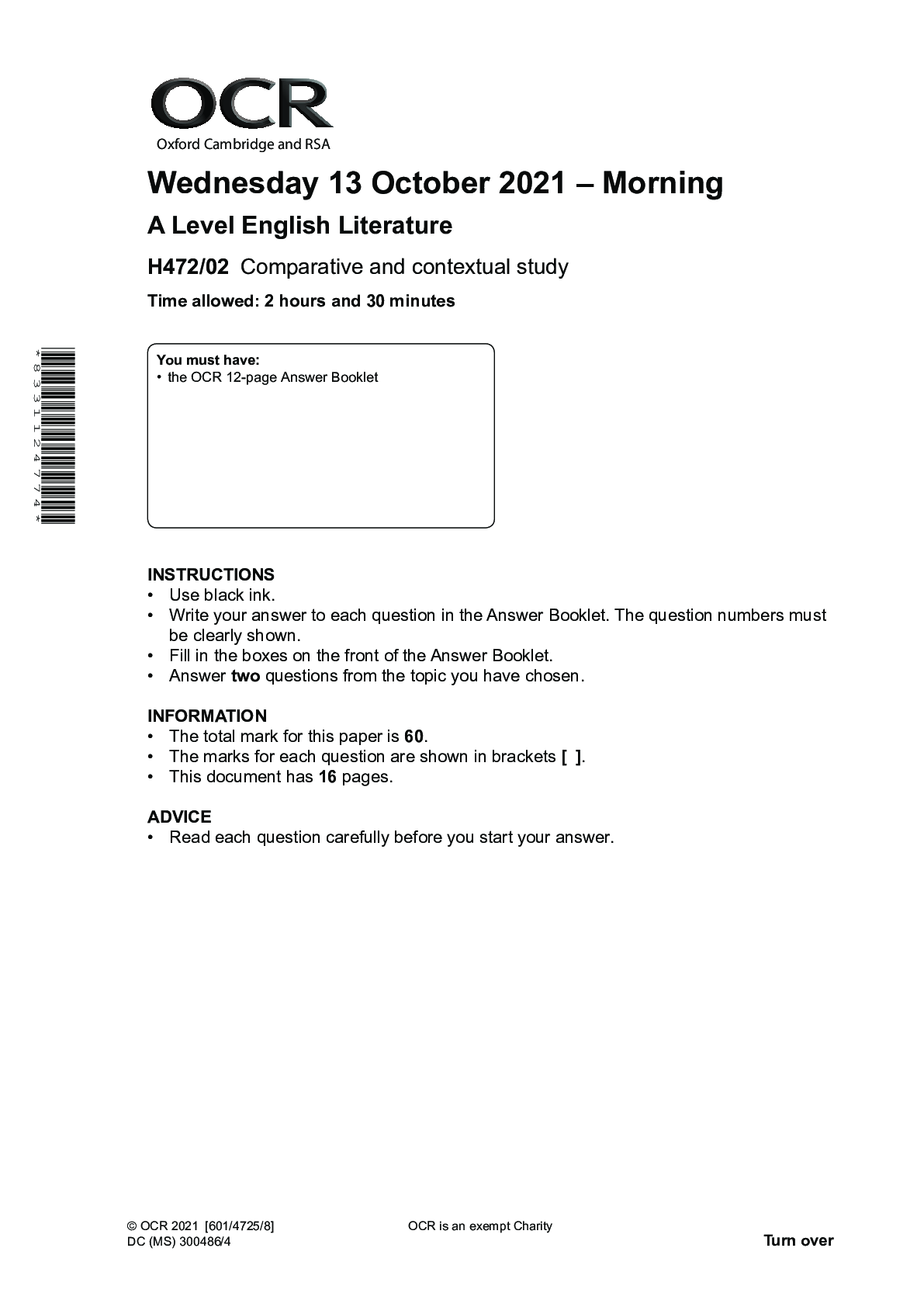
Buy this document to get the full access instantly
Instant Download Access after purchase
Add to cartInstant download
Reviews( 0 )
Document information
Connected school, study & course
About the document
Uploaded On
Jun 29, 2022
Number of pages
16
Written in
Additional information
This document has been written for:
Uploaded
Jun 29, 2022
Downloads
0
Views
76

.png)
